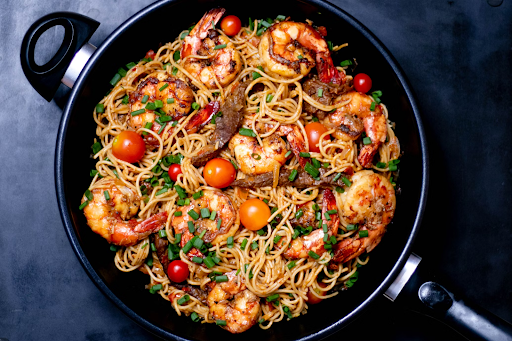Dysphagia is the medical term that is used to refer to difficulty swallowing food or liquid. People with this condition may swallow more slowly compared to others, or experience pain when swallowing. In severe cases, it might even be impossible to swallow. The condition can lead to various symptoms alongside having trouble swallowing. Some of the main symptoms of dysphagia to look out for include:
Food Feels Stuck in the Throat
Dysphagia is a condition that can sometimes cause a sensation that food is being stuck in the throat while eating. In some cases, food that is getting stuck in the throat while swallowing may come back up into the mouth afterwards, or even come back up through the nose.
Struggling to Swallow Liquids
People with dysphagia will often struggle to swallow liquids such as coffee and tea, water, juice, or soups. A common symptom of dysphagia is aspiration, which occurs when something you swallow ‘goes down the wrong way’ entering your airway or lungs. To make it easier for people with dysphagia to swallow liquids, SimplyThick thickener gel can be added to create a consistency that is easier to swallow.
Coughing During or After Eating
Trouble swallowing can make it more likely that somebody will cough during or after eating. This is usually due to the fact that the food has not been fully cleared from the throat after it has been swallowed and can increase the risk of choking.
Excess Saliva
For people who have difficulty swallowing, they may not swallow as frequently as they used to. In some cases, dysphagia can lead to a difficulty with swallowing your own saliva, which can lead to excess saliva and drooling.
Risk of Pneumonia
Trouble swallowing can not only lead to a higher risk of aspirating or inhaling liquids, but also some pieces of food. When food gets into the lungs, this can lead to more frequent occurrences of lung infections such as pneumonia.
Weight Loss
People with dysphagia might experience sudden and rapid weight loss. This is because with a condition that makes it difficult to swallow, it can be hard to get the right number of calories and nutrients from your diet. Patients with dysphagia should consider eating a diet that is rich in healthy fats, vitamins and minerals that come from foods that are typically easier to swallow such as mashed avocado or Greek yogurt.
Dehydration- Symptoms of Dysphagia
When an individual with dysphagia struggles to swallow liquid, this can cause them to be unable to drink properly. As a result, this can lead to an insufficient fluid intake, which causes dehydration or a shortage of water in the body. Symptoms include tiredness and fatigue, dry skin, hair and nails, frequent headaches, and dark-colored urine. In more severe cases of dehydration, it can cause seizures, urinary and kidney problems, or hypovolemic shock.
Dysphagia refers to struggling to swallow food or liquids. It can be caused by several different conditions and is often accompanied by all or some of the above symptoms.





